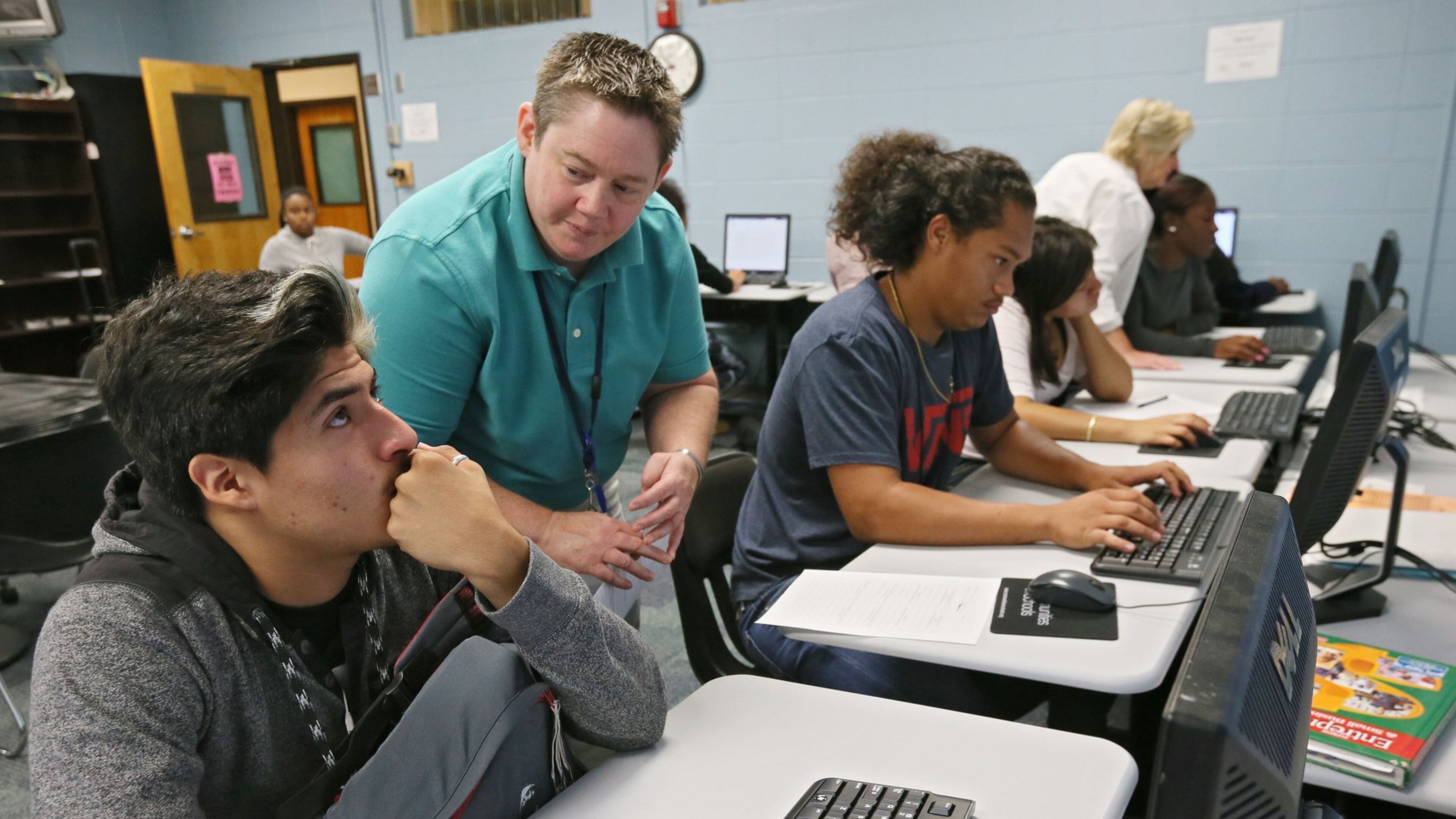New data about student “aptitudes” could help fill worker skills gap

A mismatch between students’ innate aptitudes and their career interests may be contributing to worker shortages in high-demand, well-paying, fields.
New test data being gathered for the first time in Georgia schools show many groups of students have natural propensities for, say, computer science, yet express little interest in the field. The Metro Atlanta Chamber, concerned about a shortage of skilled workers, hopes the new numbers will help change that.
The data will be available for schools across metro Atlanta, so companies will be able to approach those where students have attributes that match their needs, and offer internships, apprenticeships, job shadowing and other interactions that might set them on a career path they hadn’t considered, said Amy Lancaster-King, director of workforce development for the Chamber. “We haven’t had a tool to understand the potential talent in our school systems until now.”
The Chamber is getting the data from YouScience, a company with a $790,000 contract through the Georgia Department of Education and the Technical College System of Georgia to provide its career tool in public schools. About 71,000 high school students have taken the voluntary online exam. With guidance from counselors, they can get an idea of how their brain wiring aligns with particular careers.
YouScience builds on research dating back to at least World War II, when the U.S. military developed methods to determine whether recruits would be better at flying airplanes or fixing them. It marries aptitudes, which many consider to be fixed, with interests, which can change, and then recommends careers based on correlations with federal labor data.
The Chamber is looking at data for 34,000 test-takers in metro Atlanta. Those numbers will be released in May. In the meantime, they have numbers from the Clayton County Public Schools, where 3,200 students were assessed. The numbers confirm what many already suspect: girls are steering clear of male-dominated fields while boys are eschewing jobs traditionally held by females.
For instance, 489 female students showed a strong aptitude for careers in the high-demand area of advanced manufacturing engineering, yet 78 expressed a high interest, a ratio of 6-to-1. The ratio among males was close to 1-to-1. It was the reverse in jobs traditionally held by women. In the patient-care category of health care, which includes nurses, dietitians and therapists, there was one female with a strong aptitude for every one that wanted the career; the male ratio of aptitude to interest was almost 2-to-1.
YouScience calls the misalignment an “exposure gap,” under the theory that students are not interested in fields that would be a natural fit because they don’t know what they’re missing, perhaps due to a lack of encouraging role models who could stoke their confidence in something they’d never considered. The results are meant to give them that confidence, said Armando Garza, a senior vice president with YouScience.
Students are “self selecting” themselves into areas where there are relatively fewer jobs, like, say, arts and entertainment, and where they are less innately able to do the work, he said. They are unaware of their options: “They don’t know what they don’t know.”



